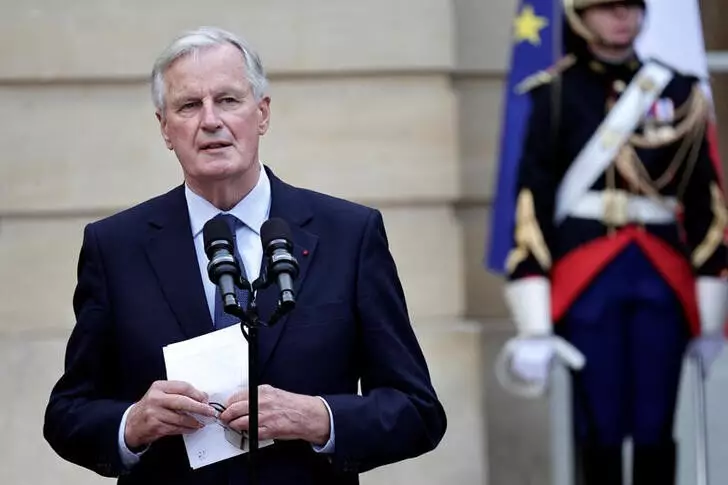The political arena in France has never been straightforward, and the recent appointment of former EU negotiator Michel Barnier as Prime Minister is a testament to the particular challenges that lie ahead. As President Emmanuel Macron grapples with the aftershocks of a tumultuous legislative election, he has entrusted Barnier, a seasoned conservative known for his role in shaping Brexit negotiations, to navigate a parliament that more closely resembles a political battleground than a collaborative governance body. With a hung parliament and competing interests, Barnier’s vision could either herald a new era of compromise or plunge France into further discord.
Macron’s choice of Barnier reflects not only a desire for stability but also a calculated attempt to capitalize on the perceived center-right orientation of the newly elected parliament. Following an election that saw the far-left coalition unexpectedly emerge as the largest block, Macron’s move has met with skepticism and outright opposition from various quarters, including heated accusations of a “democratic coup.” As protests and vocal dissent ripple through the streets of French cities, the stakes for Macron are elevated. With the clock ticking down to 2027, questions loom over his ability to implement reforms without a solid parliamentary backing.
Rather than dissipating political tensions, Barnier’s appointment may intensify them. Political factions on both sides have drawn lines in the sand, with the far-right National Rally extending cautious support tangled in demands that could complicate Barnier’s governance strategy. The possibility of political backlash looms large over the new administration, as Barnier will need to balance competing interests while addressing urgent economic concerns like inflation and immigration.
Michel Barnier is no stranger to high-stakes politics, but his previous experience as both a domestic and European politician brings forth a double-edged sword. Though he served as a prominent face for the EU during the Brexit negotiations, often vilified by Brexit supporters in the UK, this past also positions him as a figure of continuity for French conservatives. Critics argue that his long-standing ties with Macron and the establishment could limit his ability to enact genuine change and stand against Macron’s vision.
The challenge Barnier faces is two-fold: he must establish credibility while confronting the remnants of his past political allegiances that many perceive as perpetuating the status quo. This tightrope walk may alienate both moderates seeking genuine reform and hardline factions desiring a break from traditional politics.
As France stands at a pivotal juncture, the implications of Barnier’s leadership extend beyond just immediate political maneuvers. His management of pressing issues like the cost of living and public safety will be under intense scrutiny. Barnier’s history suggests he may lean towards pragmatic solutions, yet adopting and implementing them in such a divided environment will require deft political maneuvering.
Moreover, Barnier’s promise to confront the challenges posed by extremism, while at the same time engaging with the far-right, raises questions of commitment to democratic principles. The balancing act he is expected to perform in the coming months will determine not only the trajectory of Macron’s presidency but also the broader fabric of French democracy.
As Barnier prepares to tackle this monumental task, he must mobilize his extensive political experience to build coalitions and forge compromises. Failure to do so may lead to an escalation of popular discontent and reduce his capacity to govern effectively. With protests simmering and political opponents keenly poised to pounce on missteps, Barnier’s era as Prime Minister could evolve into a critical examination of loyalty, adaptability, and resolve in French politics.
While Barnier’s extensive experience offers potential for recovery amidst chaos, the political landscape remains perilous. His success will ultimately hinge on his ability to engage diverse political factions, respond to public grievances, and establish a clear and credible forward trajectory for a nation in flux. The question remains: will his past empower him to lead, or will it weigh him down in an increasingly polarized political climate?

